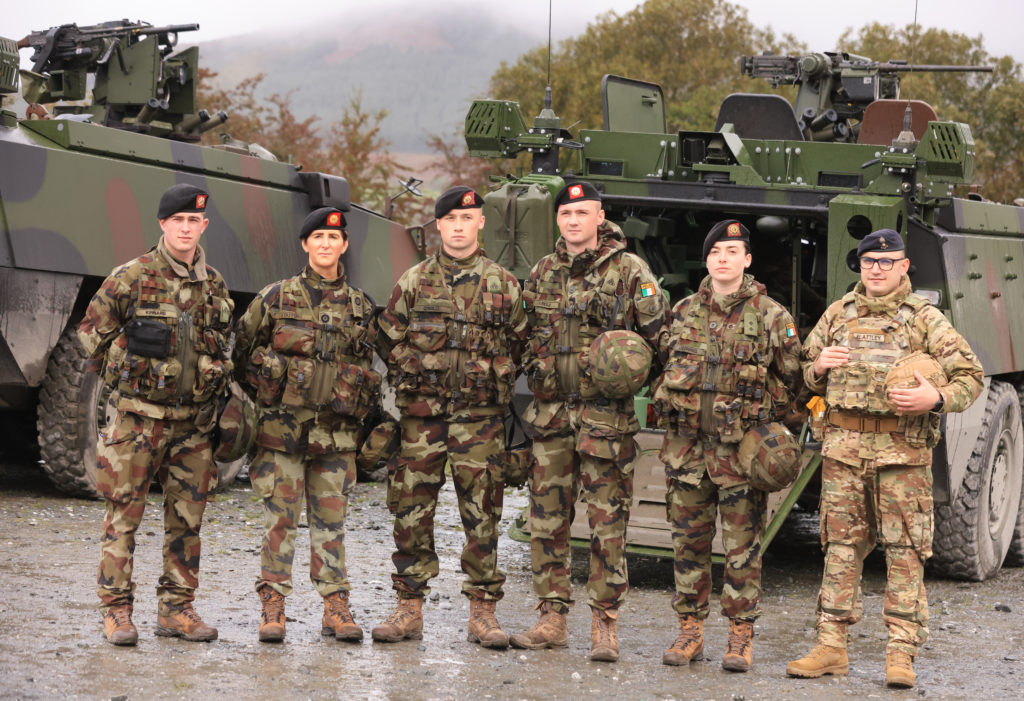TÁNAISTE Simon Harris, has confirmed that the Irish government will bring forward legislation later this month to change the triple lock mechanism that governs the deployment of Irish Defence Forces overseas.
Mr Harris, who is also Minister for Defence, was speaking at the annual PDFORRA conference in Co. Clare. “PDFORRA’ stands for Permanent Defence Force Other Ranks Representative Association.
It represents the interests of enlisted members (non-commissioned personnel) of the Irish Defence Forces — including the Army, Naval Service, and Air Corps.
Mr Harris said the “heads of the bill” will be presented to Cabinet shortly. In Irish government terms, the "heads of a bill" (also called "general scheme of a bill") refers to a preliminary draft or outline of proposed legislation.
 Members of the Irish defence forces
Members of the Irish defence forcesThe move marks a significant shift in Ireland’s long-standing approach to peacekeeping, which has required approval from the Government, the Dáil, and the United Nations Security Council before sending 12 or more troops abroad.
The Irish government has previously signalled its intention to remove the UN Security Council component, arguing that Ireland’s ability to respond to international crises should not be dependent on potential vetoes from permanent members such as Russia or China.
“There are countries that are militarily neutral and they don’t have the Triple Lock — they are not the same thing,” Mr Harris told RTÉ News. He added that while military neutrality remains central to Irish policy, it should not be conflated with procedural limitations.
PDFORRA used the conference to highlight continuing problems with retention across the force.
While Defence Forces numbers have recently stabilised at around 7,545 personnel, including 6,074 in the army, 726 in the air corps and 745 in the naval service, PDFORRA President Mark Keane said this was not enough and pointed to a lack of progress on long service increments and better pay for specialised roles, particularly technical staff.
Mr Harris also announced that Ireland’s contribution to the UNIFIL peacekeeping mission in Southern Lebanon will be extended for another 12 months.
He reaffirmed the Government’s commitment to pursuing justice for Private Seán Rooney, the Irish soldier killed while serving with UNIFIL in 2022.
The Defence Forces Press Office said 2024 marks the first year of net growth in personnel since 2017. It attributed this to revised recruitment policies, including raising the age limit for entry to 39 and improving salaries. A newly qualified private now earns over €42,000, while a new lieutenant earns between €44,000 and €50,000.
Other initiatives include an increase in the retirement age to 62, access to free secondary health care, and significant capital investment in facilities, accommodation, and training.
The organisation says these measures, alongside the implementation of the EU Working Time Directive, show its commitment to making military careers more attractive and sustainable.
“There is no quick fix to retention,” a Defence Forces spokesperson said. “But we are adapting to the modern labour market to ensure that serving personnel feel valued.”
The triple lock, introduced in 1997, has long been a cornerstone of Ireland’s overseas engagement policy, but debate around its reform has intensified in light of shifting geopolitical realities.

